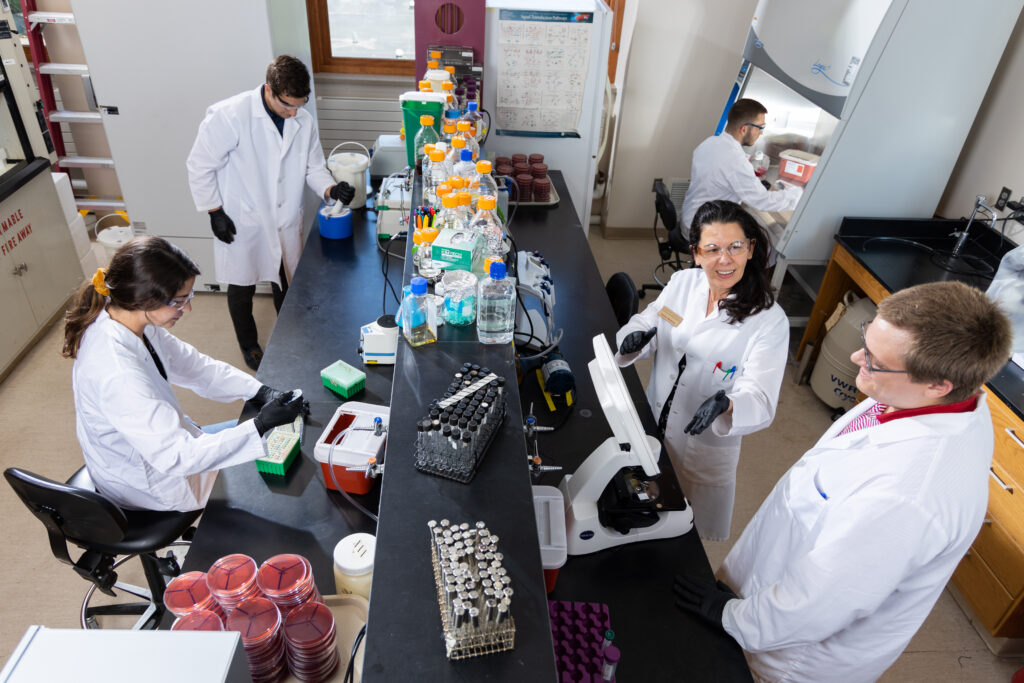Mellata Lab Publishes article on Bacteria Strain development in Journal mSphere
Dr. Melha Mellata, an associate professor in the Department of Food Science and Human Nutrition (FSHN), and her team recently published a research article in the October edition of the mSphere journal, part of the American Society of Microbiology. In Drosophila Model for Gut-Mediated Horizontal Transfer of Narrow- and Broad-Host-Range Plasmids, Mellata and her team, in collaboration with FSHN Assistant Professor Dr. Elisabeth McNeil, explore the impact of host sex and genetics on the abundance and diversity of harmful bacteria strains mainly sourced from food, such as E. coli and Salmonella, in the gut and the emergence of multidrug resistant bacteria that threaten human health because their resistance to the last-resort antibiotics.

Bacteria have several methods of adapting to their environments. For this specific study, the group analyzed the process by which bacteria in the gut perform Horizontal Gene Transfer (HGT), leading to a sharing of DNA the make bacteria more adaptive to their environment. This process has proven to quicken antibiotic resistance (ARB) among the various strains of bacteria. Using Drosophila melanogaster, more commonly known as the “fruit fly,” the group was able to conclude that this process does occur within a gut, creating new strains of bacteria, and that a host gut’s inherent sex and genetics impact the abundance of these bacteria. Additionally, the group was able to show that the use of Drosophila as hosts for the study of bacterial behavior can be successful, and presents unique opportunities due to their unique innate immune systems, rather than adaptive immune systems.
The people involved in the study are Dr. Mellata’s Graduate student Logan Ott (first author) and undergraduates Mark Engelken and Sara M. Scott (co-authors).